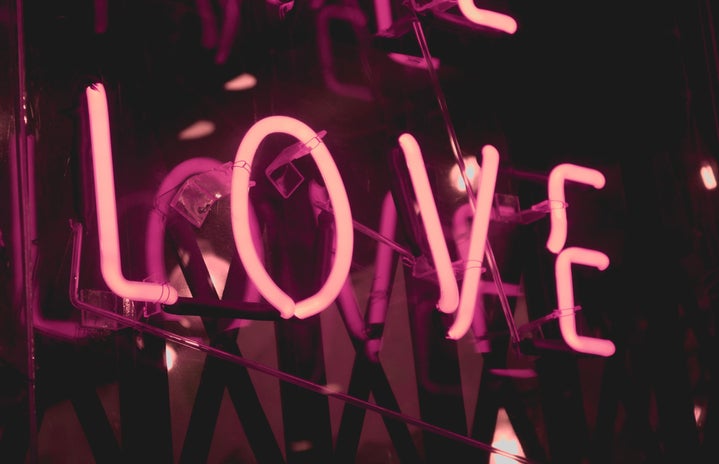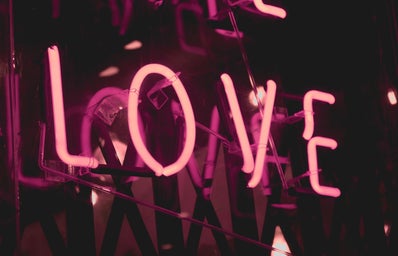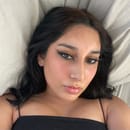I don’t know if you’ve ever watched an episode of Love Island before, but let me sum up what the show is about for you if you haven’t.
According to their IMDb page, Love Island features “single hopefuls looking for love complete tasks, couple off and get voted out week by week.” Oh, and it’s “packed full of drama.”
To help and harm contestants along the way, there are challenges that involve spitting food from one mouth to another, kissing body parts of all varieties, and spilling all of your embarrassing secrets to an entire nation of viewers. Other contestants are added in over the course of several weeks, so the final lineup is almost never comprised of the same 10 or 11 that start off the season.
The show has several different series with contestants from various countries, but the U.K. (recently wrapped up season seven), U.S (recently wrapped up season three), and Australia (currently airing season three) series’ are arguably the most iconic.
Public opinion of the contestants that grace the Love Island villa with their presence for several weeks every summer is fairly mixed. There are those who love the world of reality television and ridiculous dramatics, others decidedly do not. A trend I noticed is that the women who choose to apply and are thus featured on the show tend to be perceived as a certain kind of person: vapid, ditsy, and conceited.
Admittedly, I did not have the most flattering perception of Love Island contestants when I first heard about the show. “What kind of person would want to be on national television practically in their underwear and sucking someone’s toes within the first 24 hours of meeting them? I could never do that,” I thought.
My morbid curiosity led me to watch the first episode of the 2017 series from the U.K., where one of the first contestants I was introduced to was Camilla Thurlow. Very quickly, my perception of ‘what kind of person would go on Love Island’ was shattered.
Camilla was 23 years old when she got accepted by the HALO trust fund to train in explosive ordnance disposal, which, by the way, is the finding and clearing of landmines in places where there had recently been conflict. She was so passionate about the humanitarian work she was doing.
Then, I came across Yewande Biala, who took part in the 2019 U.K series. Yewande, who has a masters degree in pharmaceutical quality assurance and regulation, worked for Pfizer for a year in data integrity and worked as a quality assurance specialist for global pharmaceutical company Bristol-Myers Squibb up until her appearance on the show.
There was also Anna Vakili, Biala’s castmate in 2019, who also has a masters in pharmacy and who works for the Portobello clinic in London. Most recently, there was Sharon Gaffka, a contestant from the 2021 U.K. series who works for the Department of Transport in England as an operations lead, and formerly worked on the Test and Trace system that helped the U.K. conduct contact tracing for COVID-19.
Those are only a handful of the women who have graced this show.
Then I started thinking about why I was only relieved when I learnt of women with higher education or “important’ jobs participating in the show. Why was it only justifiable when I saw something I deemed important in them? Why does someone even need to be redeemable or justify participating in a show like this?
More importantly, why was I so concerned with this?
I realized that in watching these people on T.V., I had started imagining myself in their shoes and wondering what I would do or how I would have reacted to the situation. Suddenly, I found myself thinking, “Hey, I could probably do that!”
Then I promptly reeled myself back in and thought, “Well, actually, I think I’d die of embarrassment if I had to kiss someone on national television.” Oh my God, if I had to go back to my hometown after being on Love Island I think I would evaporate.
So, naturally, I opened up the application.
To be honest, it surprised me.
The first 20 questions were fairly basic; name, age, basic visual description, location, social media handles. They asked which major airport you’re closest to, what city you’re currently living in plus where you’re originally from, and if you have a valid passport. They also ask for three photos of yourself from the past year.
Then, they move on to some more in-depth questions, asking about current relationship status (how long you’ve been single, or what kind of situation you’re in), the reasons and details of your last break-up, the best part of being in a relationship, and if you’ve ever been married.
The application also asks questions that make the applicant sit back and truly think; they ask if you’ve ever been in love –– then, to describe it to them. Are you genuinely looking for a relationship? Why are you currently single? What makes you a good partner?
All of those questions really made me stop and think and I appreciated that. As I was writing them out, I had to get in touch with feelings and ideals that I had never actually vocalized or even written down before. It was strangely freeing.
I think I applied to Love Island because there is a part of me that wants to prove to myself and everyone else that I could make it. That I could make something of it. Another part of me wonders if it is to scratch the vanity itch that always seems to be out of reach.
Who knows? I doubt I’ll get picked.
I never put an application out there because I wanted to get picked, though. That said, another part of me aches to put up a metaphorical middle finger to anyone (including my past self) who assumed that I could not or would not ever do something like this. As if to say, “screw you, I can do what I want,” even if that is what involves strutting around on national television in a bikini.
Jury’s still out on the kissing, though.
For now, let me play pretend and imagine that they would even consider me.
Reality television is cutthroat and very few are actually able to deal with the life that comes with it. I don’t know if I would be able to, I’ve never thought about it before. In filling out the application, I really did sit back and think multiple times about the reality of the situation I would be thrust into should I be accepted and chosen to participate.
While that is far from a realistic outcome, I still had to sit back and think about if I was really prepared for the entire nation to see me and pass judgement on who I am without actually truly knowing me. I had to think about whether or not I was prepared to have my body shown to the nation, if I was prepared to have my face at every hour of the day be broadcast to millions.
Overall, I know it sounds stupid that I went on a journey of self-discovery because of a Love Island application. Believe me, if you’d asked me about a year ago if I would ever consider applying for a reality dating show, I would have laughed right along with you.
Cutting all the BS out, I had to get real with myself in doing the application. I know people might be reading this and shaking their heads at me, but that’s okay.
Regardless of what happens with my application, I think a part of me is grateful that I even considered opening one up in the first place. Getting real with myself over Love Island wasn’t something I had in my 2021 Bingo card, but I’m weirdly happy I did it.
All in all, if I randomly disappear and then reappear on national television in the only bikini I wear in public, please vote for me.


